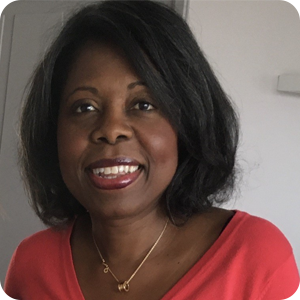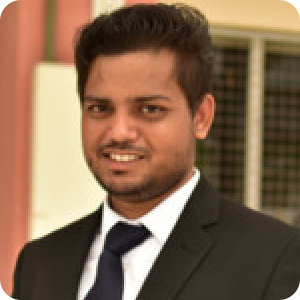The levels of human development are considerably higher in rich countries, according to the 2023/24 Human Development Report (HDR) by the United Nations Development Programme (UNDP). The same report states that in half of the world’s poorest countries, the Human Development Index (HDI) is lower compared to their pre-pandemic level of progress. The HDI focuses on measuring life expectancy, literacy, education and standard of living. We discussed the widening human development gap, the role of multilateralism in this situation, and the necessary solutions to address disparity with several experts. Check their opinions below.
Key Takeaways:
- The HDI is a statistical index used to measure the level of socio-economic development in 189 countries. It focuses on measuring the average achievements related to human development, health, education, and standard of living.
- Switzerland, Norway, and Iceland top the latest HDI index, while Somalia has the lowest rate of human development index.
- The widening gap in human development between wealthy and poor nations is caused by the lingering effects of COVID-19, the worsening of economic disparities through globalization, and limited access to essential services in the poorest countries.
- According to experts, multilateralism is crucial for addressing global challenges, as bilateral engagements alone cannot adequately provide global public goods.
- Necessary actions to raise the HDI include prioritizing education, promoting good health and well-being, pursuing gender equality, and focusing on achieving all the Sustainable Development Goals well before 2030 with a focus on good governance.
DevelopmentAid: The widening human development gap revealed by the report shows that the two-decade trend of steadily reducing inequalities between wealthy and poor nations is now in reverse. What are the main causes and consequences of this?

“The stark revelation within the 2023 report, unveiling the widening chasm in human development among wealthy and poor nations, stands as a disheartening testament to the regression of efforts aimed at reducing global inequalities. There are several main contributing causes to this concerning trend that has significant consequences for global well-being. First, the negative effects of COVID-19 containment measures are still prevalent four years after the global economy was propelled into chaos. Businesses are still struggling to survive in the wake of supply chain disruption, widespread unemployment, and reduced consumer spending. One of the many sectors affected by this reduction in consumption is global tourism whose significant decline results in a substantial loss of income for countries heavily reliant on this industry. As a result of this equation, economic disparities are exacerbated, leaving many poorer nations and their citizens deprived of access to resources and opportunities. In many ways, they are bearing the brunt of COVID-19’s socioeconomic impacts while richer countries rebound more swiftly. Secondly, globalization, which was supposed to play a pivotal role in enabling economic growth for all, has not met the multiple expectations. On the contrary, vast segments of the world population are experiencing worsening disparities in income distribution, while considerable wealth remains concentrated in the hands of a few. Thirdly, the consequences of the poorest countries remaining below their pre-pandemic level of progress give rise to limited access to essential services such as social protection, lack of healthcare infrastructure and resources, quality education, technology to mitigate the effects of climate change and to adapt to changing environmental conditions. These circumstances have the capacity to make vulnerable populations increasingly marginalized and to reinforce disparities in human development. Social unrest and political instability may follow, as disenfranchised communities demand greater equality and opportunities for advancement.”

“The widening human development gap has entrenched inequalities, derailed social progress, slowed economic growth, and undermined global stability. There is an urgent need to revitalize international cooperation and enact the required policies to ensure a more equitable and inclusive model of development. But, ‘a dark cloud looms over global development.’ Currently, wealthy nations are soaring in human development, but half of the poorest countries are struggling to recover from the COVID-19 pandemic. This uneven progress created the gap, fueled by concentrated economic power being in the hands of few and the lingering inequalities of colonialism’s legacy. And globalization’s benefits are uneven too, with developing nations at risk of falling behind due to rapid technological change. The consequences are stark: high poverty, stunted economic development, social unrest, and disparities in levels of education and health. The widening human development also makes global cooperation harder to implement. We must address these issues and work towards inclusive, sustainable development for all. So, with the continuing complexity of the factors, to fill the divide, achieving the Sustainable Development Goals by 2030 can be a major thrust to ignite global cooperation. Let us take HDR 2024 with some seriousness.”
DevelopmentAid: In this context, the UNDP report states that multilateralism plays a fundamental role because “bilateral engagements are not able to address the irreducibly planetary nature of the provision of global public goods.” Can you comment on this?

“Bilateral engagements have their rightful place in the areas of diplomacy and cooperation. They are motivated by lofty ideals and a deep, powerful willingness to contribute and have a real impact. They represent an element of cohesion as well as an essential dynamic in the friendly relations between two nations. They carry a certain capacity to act as closely as possible to needs, not complex, global challenges. If they are effectively utilized, they could exceed their own limitations of scope and enable countries struggling for their survival and development to achieve a certain level of wealth and success. In the field of international relations, multilateralism is fundamental, driven by values and principles that are essential to address shared challenges such as climate change, pandemics, and international security threats, and to promote collective well-being, and advance global sustainable development agendas. Incidentally, addressing the root causes of the widening gaps in human development requires concerted and collaborative efforts from multiple governments, international organizations, civil society, and the private sector to tackle issues that transcend borders and require collective action. In a way, the central core, the very axis of actions undertaken at the bilateral and multilateral level is common. All things being equal, the two entities add their own contribution for the advancement of poorer countries to a certain level of wealth and stability. It often happens that some international issues reveal ideological divisions. However, in bilateral and multilateral commitments, no strategic divisions or fundamental divergences should be emphasized by virtue of working towards the same objectives in promoting inclusive and sustainable development and a more equitable and sustainable future for all.”

“Coordinated and common, united actions are crucial for solving global problems. The irreducibly planetary nature of many of today’s greatest challenges (climate/pandemic/financial instability) means that multilateralism is not a choice but a necessity. While not without flaws, it remains the most promising avenue for delivering global public goods and ensuring a more equitable and sustainable future for all. A fragmented, polarized world is a recipe for collective failure. As the report argues, we must, therefore, reimagine and revitalize multilateral cooperation for the 21st century. Multilateralism provides a window – ‘no nation can do it alone’. It brings countries together to share resources and expertise. Bilateral deals remain too narrow. Without strong frameworks, countries might slow overall progress. Well-run multilateral bodies give everyone a voice, ensuring fairness. However, multilateral mechanisms are also criticized for being slow, bureaucratic, and dominated by powerful countries. Despite these hitches, multilateral platforms need to combine global knowledge and resources to aid developing nations.”
DevelopmentAid: What, in your opinion, are the actions necessary to raise the level of the Human Development Index?

“I firmly believe that it is imperative to take concerted action to elevate the level of human development, thus ensuring a brighter future for all individuals worldwide. The approach to address various dimensions of well-being is multifaceted. In my opinion, EDUCATION in all its components must be the alpha and omega, regardless of socioeconomic background or geographical location, as a basic determinant of human development. It enables individuals to acquire the knowledge, skills, and capabilities necessary for personal fulfillment and socio-economic advancement. Good health and well-being must be elevated to the pinnacle because a sick society that is unable to work, create, or address national and international challenges can hinder socio-economic progress and economic empowerment. The prioritization of these actions, adding to the pursuit of gender equality, should allow significant progress in advancing human development. No effort should be spared to empower women and girls, to eliminate gender disparities in education, healthcare, and employment, to promote their participation in politics, and to ensure their full participation in society. This includes measures to address gender-based violence, promote reproductive rights, and improve women’s economic opportunities.”

“In my opinion, all nations should focus on achieving all the Sustainable Development Goals targets well before the scheduled 2030 with documented accuracy. Data compliance targets should be a priority. Regarding human development, good governance should also be a priority. This means building efficient, open institutions that manage finances, deliver services effectively and uphold the rule of law. By making SDGs a priority and taking appropriate concerted actions in the key areas, countries can improve their HDI scores and advance the well-being of their citizens.”
If you want to contribute to increasing the Human Development Index in developing countries, consider a job in the international development sector. While the competition is fierce, with the right credentials, you can secure a position with a prestigious project or organization. On the DevelopmentAid platform, there are more than 6,500 open positions in international development. With an Individual Professional Membership, you can access all these and decide which suits you best. Additionally, you will also be able to see donors’ and organizations‘ profiles, tenders, grants for individuals, and much more.

